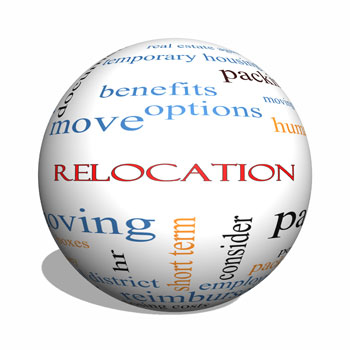Top 6 Reasons to Find a New Job: When is the Right Time to Change Jobs?
Post Views 7There are times when people become so fed up with their jobs that leaving it all behind and opening an ice cream parlor in the Rocky Mountains looks like an easy way out. Most of us resist this fantasy. But there are people who leave their jobs at the slightest provocation, even before lining up another. These days finding a new job is likely to be easier than it was a few years ago.
Before deciding to leave any job, you should analyze your motives. You want to avoid running away from personal problems or conflicts. They will only follow you. If, for example, you want to change jobs because you feel restless, do some soul searching. You may discover it isn’t your work causing your restlessness, but something in your personal life.
Take time to write down what you like and don’t like about your present job. Obviously, the good should outweigh the bad. While weighing the pros and cons, remember: No job is perfect and most require making some trade-offs. It may mean a little tedium for security, a little politics for getting ahead, a little drudgery now and then for future advancement. You may even find there are some good reasons for sticking with your present job. You may have the benefits of seniority, or your company may have a policy of promoting from within.
Reasons for Leaving
When assessing your current job, there are many valid and good reasons for setting yourself free to find a more fulfilling job. Consider these reasons for leaving:
- You’re confronted with unstimulating and unchallenging work that goes nowhere.
- You find that your career is going stale, and you’ve stopped feeling eager, creative and motivated.
- You feel underutilized and unappreciated.
- There are too many unreasonable demands placed on you in an unreasonable amount of time.
- You have little chance for further personal and professional growth.
- You’re spending time on everything but what you were hired to do.
- You suddenly find your job meaningless and feel an attrition of vitality, energy and ability to function.
- You keep plugging away at something you don’t enjoy doing.
- You’ve only had occasional, infrequent raises and grudging promotions.
- Your career has been put on hold, or you received a demotion.
- You’ve been adversely affected by a sudden change in your company’s direction because of a merger or acquisition.
- Despite working several years for the company, you still feel like an outsider.
- You’re performing a job you’re not suited for — it isn’t matched with your abilities.
- You spend inordinate effort to accomplish your tasks, but the results are below par.
- You’ve started sleeping a lot, or you find that just getting up in the morning and going to work is a chore. Once there, getting anything done is a major effort.
- You go about your daily routine in a mechanical and alienated way.
Hopping from Job to Job
There are people whose careers are marked by migratory patterns. These people change their employers every year or two. The tendency to become bored and seek change and variety may account for some job-hopping patterns, yet other reasons persist: more rapid promotions, new opportunities and more money.
Many job hoppers eventually find themselves in a vicious circle that not only means loss of time, money and tranquility, but also a serious erosion of their credibility. Although migratory patterns are no longer regarded as signs of instability, frequent job changes, at some point, can create an impression of disloyalty and unreliability. Worse still, some may prevent a person from getting the job that he or she really wants.
In considering whether a job change is merited, consider the following six criteria. You may discover insights that will speed your transition — or personal weaknesses you should shore up before attempting a next move.
1. Inertia. There are situations that may force you to move on. Yet, inertia often keeps people from making a move. Newcomers to the job market often experience this paralysis. The familiar, even though painful, appears preferable to the hazards and risks of the unknown.
Staying in an intolerable job is dangerous: You risk becoming too demoralized and depressed to function well in any new capacity. The acute pain of quitting is preferable to the chronic agony of staying put.
2. Boredom. A certain degree of boredom and drudgery should be expected in any job or profession. Even the most accomplished performers with the most creative careers experience occasional spasms of boredom. Still, chronic boredom exists for many.
Boredom can be dangerous to your health. Psychological and physical problems associated with boredom include headaches, poor appetite, stomach trouble, nervousness, high blood pressure, insomnia, lower back pain and possibly even strokes and heart attacks. In addition, studies at Florida State University found a strong relationship between boredom and the frequency of alcohol and drug abuse.
Monotonous work or too much free time aren’t the only contributors. A lack of challenge or inability to use all your talents can trigger boredom. Frustrated ambition can also play a factor when career expectations aren’t met. Sometimes boredom signals burnout, depression or avoidance of something one doesn’t want to face in one’s life or work.
If you experience chronic boredom with your work, don’t hesitate to change jobs. The sooner you can recapture your motivation and enthusiasm the sooner you’ll find fulfillment. Boredom reaches troublesome proportions when you can no longer make a decision or take responsibility for your career. Resigning yourself to a sense of ennui can turn into a career death wish.
3. Troubles with your boss. Some people become restless when they feel that the boss doesn’t appreciate their work. There are bosses — many of them — who give a pat on the back and toss out a keep-up-the-good-work pep talk only during annual appraisals. The rest of the year they take good performance for granted — until something goes wrong. Or because your boss has no gripes with your work, he says nothing.
But don’t just assume your boss thinks little of you and your performance. Check it out. Ask for a conference to discuss your job and future with the company.
Sometimes you simply can’t win. You and your boss may have incompatible personalities. Mutual antagonisms and a stressful relationship may be inevitable. New employment should be considered if:
- You have a boss with whom you can’t communicate.
- You’re controlled too tightly and are tired of being told what to do all the time.
- Your boss likes to make you seem either stupid or ignorant.
- Your boss likes to keep you in a constant state of turmoil.
4. When there’s nowhere to go. There are people who don’t experience any inordinate frustration at having reached a career ceiling. They are usually older or near retirement, or they have so many positive features in their jobs that the absence of further promotions is easily taken in stride.
On the other hand, people with thriving ambitions can be traumatized when they reach the ceiling. Realizing that your job or career has run its course is depressing and demoralizing. Many beat the plateau depression by finding renewed purpose and challenge in a new job or line of work.
You should change jobs if you get stuck at the same level in your present job and know you can do far better elsewhere. To have prematurely hit a promotional ceiling will do nothing for your career.
5. When a job is in jeopardy. Not everyone recognizes the warning signs of a job in jeopardy. It’s unfortunate because early detection gives you a chance to map a strategy for finding a new job while you’re still employed.
To avoid any surprises, familiarize yourself with some of the classic danger signs:
- A sudden deterioration in your relationship with your boss.
- Being passed over for a promotion.
- Not getting that promised raise.
- Exclusion from key meetings.
- Infrequent or strained meetings with your boss.
- No more good assignments.
- Indifference toward your memos.
- A person has been hired for a newly created position similar to yours.
- Your input is no longer sought on problems concerning your department.
- Your department’s budget is cut.
- Rerouted memos or reports pass you by.
- Your new projects are turned down.
- Colleagues begin avoiding you.
6. If the company’s future becomes questionable. Is your company spiraling downward and not likely to make a go of it? Any gradual downsliding and loss of profits bear attention: you want to get out while there’s still time. Avoid all of the miserable consequences of going down with the ship.
The question of whether to move or stay put isn’t always an easy one. Consider the possibilities carefully. Sometimes an unsatisfactory job can be freshened up or redesigned so that it benefits both you and your company. It’s also possible, at times, to switch to another department in the same company to find work that’s more personally fulfilling.
If those options don’t exist and your success and psychological welfare are threatened, take action to change jobs. There’s nothing to gain by staying put if you don’t like your job content or if you find that your ideas, beliefs, style and personality aren’t compatible with your present organization.
Top 6 Reasons to Find a New Job: When is the Right Time to Change Jobs? by Harrison Barnes



 Six High-Paying Careers You Can Transition to
Six High-Paying Careers You Can Transition to  Should You Buy a Home? The Cheapest Cities to Buy a Home and Live
Should You Buy a Home? The Cheapest Cities to Buy a Home and Live  Turn Your Internship into a Job Offer
Turn Your Internship into a Job Offer  2015 New Year’s Resolutions at Work
2015 New Year’s Resolutions at Work  Job Relocation Costs: It Often Costs Much More than You Think to Pick Up and Leave
Job Relocation Costs: It Often Costs Much More than You Think to Pick Up and Leave  10 Ways to Rebound after Being Demoted
10 Ways to Rebound after Being Demoted  How to Reinvent Your Career and Repackage Yourself for a New Career
How to Reinvent Your Career and Repackage Yourself for a New Career  5 Setbacks That Will Help You Later in Life
5 Setbacks That Will Help You Later in Life